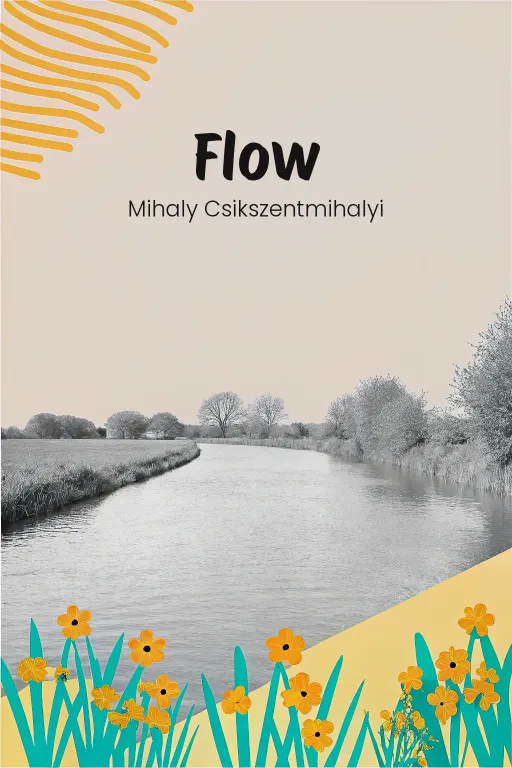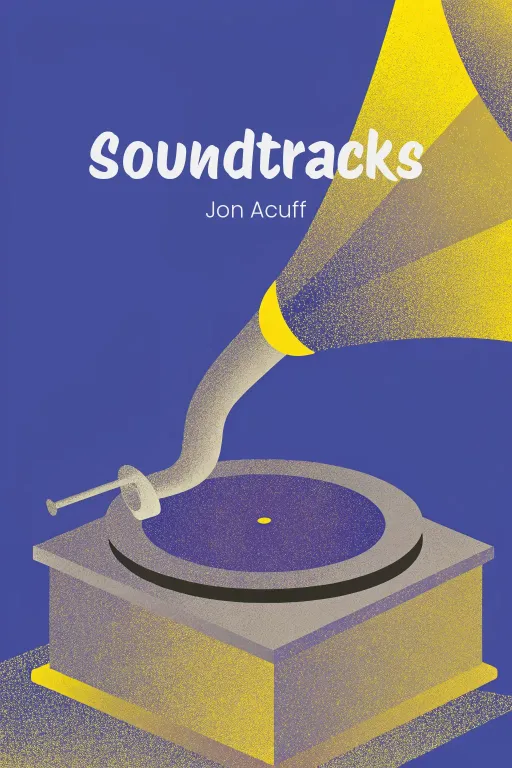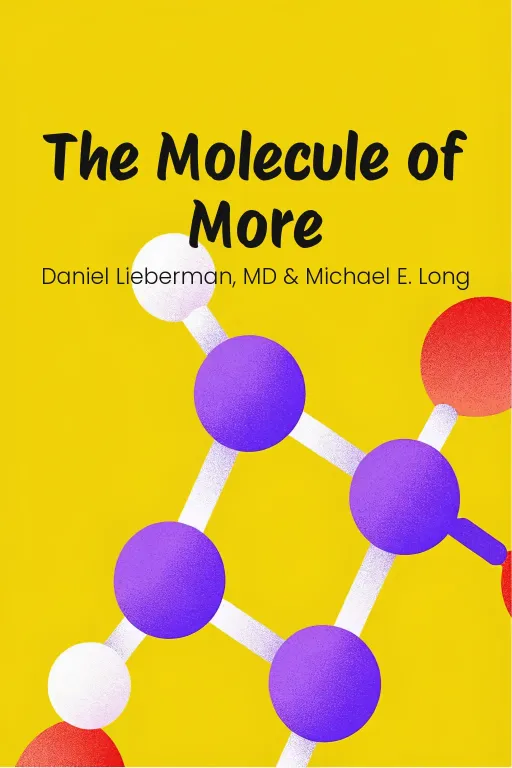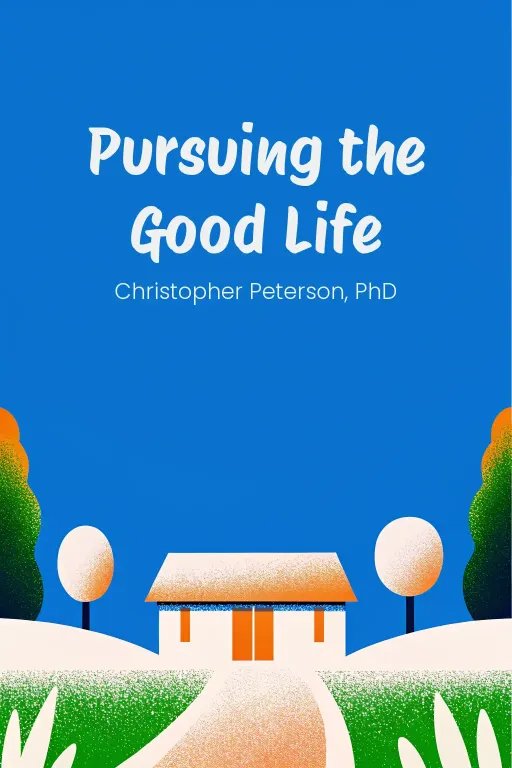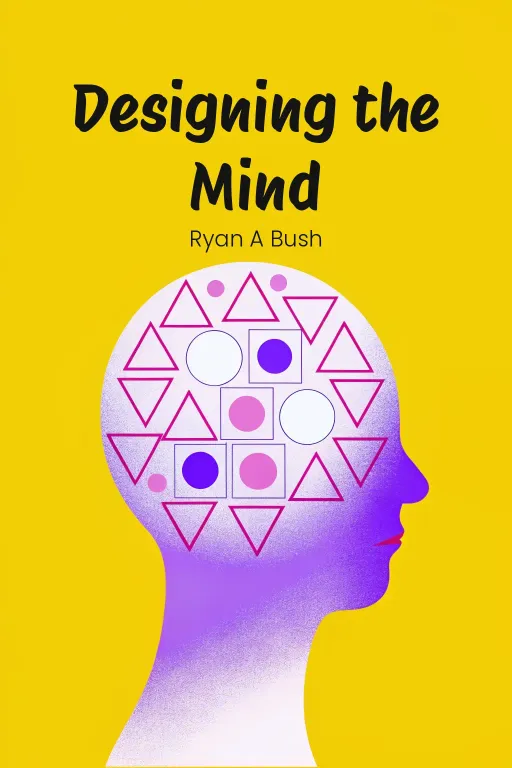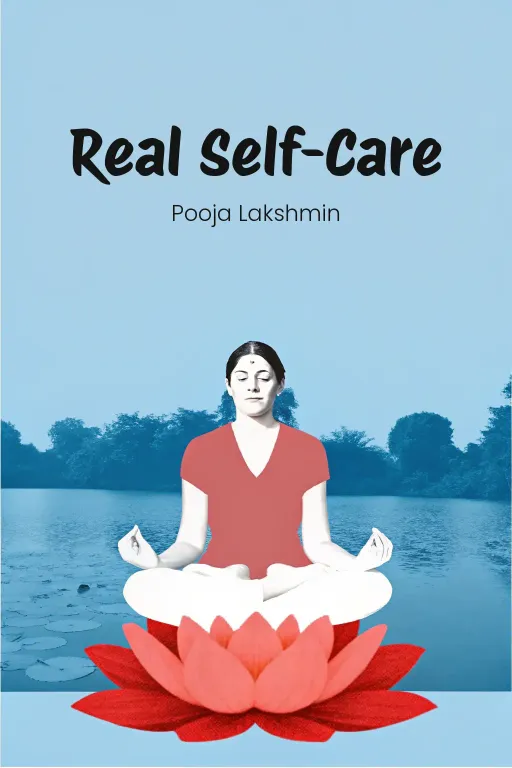
Find Your Focus: Unlock the Flow State
Podcast by The Mindful Minute with Autumn and Rachel
The Psychology of Optimal Experience
Find Your Focus: Unlock the Flow State
Part 1
Autumn: Hey everyone, and welcome! Today, we're diving into something we all want, but rarely think about: how to actually feel alive in what we do. Remember the last time you were completely lost in something, hours just disappeared, and you ended up feeling energized instead of exhausted? That feeling – that's essentially what we're talking about: the state of flow. Rachel: Exactly. And no, we're not talking about spacing out at work, or binging Netflix for hours. Flow is that amazing mental zone where your focus, skills, and the challenge in front of you all click together. Apparently, this is the secret ingredient to a life that actually means something. Autumn: Right! Mihaly Csikszentmihalyi's book, The Psychology of Optimal Experience, is all about this. It's not about waiting around for happiness to just show up, or depending on rewards from the outside world. It’s about taking control of your own mind, finding a sense of purpose, growing as a person, and yes, even finding joy by tackling challenges head-on. Rachel: Okay, I'm intrigued, but it still sounds a bit… theoretical. But don't worry, we’re going to break all of this down! First, we’ll really define what "flow" is, and why it matters so much. Then, we'll look at the recipe, the ingredients that go into creating flow, and how you can adjust your life to find it more often. Autumn: And finally, we'll talk about the ultimate reward: how embracing this idea can change not only how you spend your time, but also how much satisfaction and meaning you get out of it. Rachel: So stick around as we try to unlock the mystery of a richer life, one flow state at a time.
The Concept of Flow
Part 2
Autumn: So, picking up from where we left off, let’s really dive into understanding flow. Basically, it’s all about total immersion. You’re so engaged in what you’re doing that everything else—time, space, your worries—just melts away. Csikszentmihalyi describes it as this perfect balance between challenge and your skill level. If it’s too easy, you're bored, right? Too hard, and you're totally overwhelmed. But when you hit that sweet spot, bam, you're in flow. Rachel: Okay, I get the idea, but hitting that sweet spot sounds pretty rare, doesn't it? Like trying to thread a needle in the dark! Maybe it's just me, but I can’t think of many moments where I’ve felt this magical balance of focus and joy. Is flow really as accessible as it sounds, or is it more of a once-in-a-blue-moon kind of thing? Autumn: It's more accessible than you might think, actually! Think of flow like a recipe—there are ingredients that, when combined, create the right conditions. For starters, you need clear goals. If you know exactly what you’re working towards, it’s much easier to focus your energy. Think of a mountain climber aiming for the summit. Every move they make is completely aligned with that single purpose -- reaching the top. Rachel: Clear purpose, sure. But doesn’t that depend on the activity itself? A mountain climber finds flow because, well, they’re climbing a freaking mountain! What if your “mountain” is, say, a presentation on quarterly sales projections? It's just...not the same. Autumn: That’s a fair point, and that's where the second vital ingredient comes in: immediate feedback. That's genuinely key for keeping you focused and motivated. Whether it’s hitting the right note when you play the piano, or hearing applause after a sales pitch, feedback tells you if you’re on the right track and helps you adjust and improve. It’s not just about the activity itself, but how you are interacting with it in real time. Rachel: Immediate feedback… I see how that could work in the arts, or even sports, things like that. But in something less tangible, like writing? You’re not exactly hearing applause every time you write a good sentence, are you? Autumn: Good example! For writers, feedback could be rereading a draft and seeing how the words flow, or even watching their ideas take shape on the page. It's subtle, sure, but it's still feedback. And that leads us to what might be the trickiest part of all: balancing challenge and skill. This is really where the magic of flow happens. Rachel: Ah, the Goldilocks principle! Just challenging enough, but not so daunting that you shut down completely. And I'm guessing this is where most people struggle, right? Our tasks tend to swing between mind-numbingly boring and completely overwhelming. Autumn: Exactly. When something is mindlessly easy, like folding laundry, it’s tough to stay focused. Your mind just wanders. But if it’s too hard—imagine a beginner chess player going up against a grandmaster — it becomes daunting and frustrating. Flow comes from matching the difficulty of an activity to your current skill. The climber finds it in mastering that specific rock face, the musician feels it when every chord pushes their precision, but doesn't break them. Rachel: Okay, so let me see if I've got this: For flow, we need crystal-clear goals, instant feedback, and… this very delicate, personal balance between challenge and skill. Sounds amazing in theory, but what about real life? Who is actually pulling this off regularly? Autumn: Let’s look at some examples. Starting with that rock climber we spoke about earlier. Imagine someone scaling a near-vertical cliff. They’re so immersed in the climb, so “attuned” to every handhold, the texture of the rock, their own body weight distribution. They’re solving a complex physical puzzle in real time. The challenge is huge here, but their skill level is perfectly matched, mistakes give instant feedback that they adjust to without losing focus. Rachel: Right. And the focus isn’t just practical - it’s total. When you’re 300 feet above the ground, you aren’t daydreaming about what’s for dinner, are you? Autumn: Exactly! Now, let's compare that to Tollas, the prisoner who turned his confinement into a personal challenge. He used soap and a toothpick to inscribe poetry on his shoes, memorizing line after line. It's astonishing because even in a terrible situation, he created clear goals, got structured feedback from other inmates who critiqued his recitations, and engaged his mind with a challenge that matched his cognitive skills. Rachel: So, he was essentially fighting boredom and despair by finding flow. Even though he couldn’t escape prison physically, his mind had somewhere to go—somewhere with purpose. That's pretty mind-blowing, actually. Autumn: It shows how versatile flow can be. You don’t need perfect conditions around you. Tollas shows us that even in “really” difficult circumstances, focusing completely on a meaningful, structured task can lead to transformation. Rachel: “Pretty” humbling, honestly. It makes any excuse I’ve had for not finding flow—like being “too busy” or stuck in a boring routine—feel a little thin. The big question for me now is, how do we cultivate this? Can you just snap your fingers and summon flow at will? Autumn: Not quite. But there are specific strategies you can use. One is breaking down tasks into clear, manageable objectives – that way, you always know where to direct your focus. Another is creating systems for feedback; even self-monitoring counts. And of course, don’t be afraid to adjust the challenges you set yourself. Feeling bored? Raise the stakes a little. Feeling overwhelmed? Build your skills step by step. Rachel: Sounds like you’re basically designing your environment to encourage flow, which makes sense. Oh, and don’t forget eliminating distractions! If my phone’s buzzing every three seconds, it doesn’t matter how crystal clear my goals are—I’m just not getting into that zone. Autumn: Exactly. Flow is about intentionality, at its heart. Creating the conditions for it takes effort and purpose, sure, but the payoff goes way beyond just the task itself.
Conditions for Achieving Flow
Part 3
Autumn: So, understanding flow brings us to how we actually create it in our lives. Which leads us to the heart of our conversation today—the conditions for achieving flow. If flow is this amazing state, how do we get there? Rachel: Exactly! How do we bottle this magic? Autumn: This is where it gets practical. Csikszentmihalyi highlights four core conditions: clear goals, immediate feedback, a balance between challenge and skill, and deep concentration. They’re like the ingredients you need to bake a cake – essential! Rachel: Okay, then let's dissect this recipe. First up, clear goals. What's the deal? Autumn: Think of goals as a GPS for your mind. Without them, you're just drifting. But when you set a clear goal, you create purpose. Imagine a marathon runner: their goal is to cross the finish line, and every step is tied to that. Rachel: So, it's less about the activity itself and more about how you frame it, right? That same run could be amazing or awful depending on whether you’re training for something or just jogging. Autumn: Bingo! And chopping big goals into smaller tasks makes flow even easier. If you’re painting a mural, don’t try to do the whole thing at once. Focus on one section each day. It gives you structure and momentum. Rachel: Alright, goals—check. Next? Autumn: Immediate feedback. Key! It tells you how you're doing in real-time. Think of a musician learning a new piece; every note says if they're on track. It keeps them engaged. Rachel: Right, so you stay connected to what you’re doing. But what if the feedback isn’t so obvious? Playing piano or climbing a mountain gives you instant results, but what about coding or problem-solving? Autumn: Good point. With writing or coding, feedback is more self-directed. A writer gets “feedback” by hearing their words or seeing if their ideas flow. Coders test their program for errors. Even small feedback counts, as long as you can adjust and stay engaged. Rachel: I see. So, clear goals set the path, and feedback keeps you on it. Now, the trickiest one—balancing challenge and skill. Autumn: Yes, the core of flow. If your skills don’t match the challenge, flow goes away. Too easy, you're bored; too hard, you're stressed. But when the challenge stretches you just enough, that's the sweet spot. Rachel: Like a video game, right? You start on “easy” to learn, but then it gets boring. You need to up the difficulty to stay interested—but not too much or you rage quit. Autumn: Exactly! And it changes as you get better. Remember Alex, the tennis player? Playing against a pro was awful. But playing with similar players let them improve. As Alex’s skills grew, the challenges got harder, and the flow stayed there. Rachel: Okay, so you're fine-tuning your environment to stay in that sweet spot, where your skills are well-matched to the task. Right? Autumn: Precisely. And that brings us to deep concentration. Total focus on what you're doing. Distractions disappear, and you're all in. Rachel: Sounds great, but rare, especially now. Deep focus is hard when your phone buzzes, emails pop up, and your dog needs a walk. How do you get THAT? Autumn: By setting it up on purpose. Look at the yogi in meditation—total focus on breath, poses, transitions. They block distractions through habit and setting. For most people, it's about finding spaces or times that help you focus. Turn off alerts, create a workspace, and use time-blocking for uninterrupted work. Rachel: So, to recap: clear goals, immediate feedback, balance of challenge and skill, and deep concentration. It’s almost a formula—but an adaptable one? Autumn: Yes! They're flexible tools. You use them for anything by tweaking them to fit—whether it's climbing a mountain or handling a project at work. Rachel: And it's amazing how universal they are. Whether you’re an artist, an athlete, or just cooking dinner, you can find flow if you set things up right. Autumn: Absolutely. Flow isn’t just for elite athletes or artists—it's for all of us. By learning and using these four things, we can turn everyday tasks into chances for growth, fulfillment, and joy.
Applications and Broader Implications of Flow
Part 4
Autumn: So, now that we understand the building blocks, let's look at how flow shows up in real life – at work, in our relationships, even when we're alone. This is where the concept “really” hits home, showing how cultivating flow can impact society. And let’s be honest, who hasn't struggled to find joy in the everyday grind? Rachel: Are you suggesting we can actually enjoy folding laundry or answering emails? That sounds a bit far-fetched. Autumn: Maybe, but hear me out! Csikszentmihalyi's research actually demonstrates that even repetitive tasks can trigger flow – IF you approach them with the right mindset. Take Rico Medellin, a factory worker. He was on an assembly line, doing the same thing all day long. Instead of getting bored, he turned it into a game, racing against his own speed and accuracy. Believe it or not, he found genuine satisfaction in what most people would consider mind-numbing work. Rachel: Okay, so Rico gamified his job. Smart. But isn't there a risk of burnout if we're constantly competing with ourselves? Autumn: That's where intention comes into play. Rico wasn't pushing himself to the point of exhaustion. He set small, achievable goals that matched his abilities. It isn't about relentlessly pushing, it's about creating growth and staying engaged. By focusing on small improvements, he not only avoided boredom, but he actually enjoyed his day. Rachel: Alright, I see your point. This isn't just for factory workers, either. Even in an office setting, you can break a big project into smaller, manageable steps to maintain a sense of progress. Autumn: Exactly. It's about finding meaning, even in the most ordinary tasks. By setting goals and viewing tasks as steps toward mastery, you can turn almost anything into an opportunity for flow. Rachel: Let's talk about the office some more, since flow can seem... difficult to achieve there. I mean, most people don't associate cubicle life with boundless joy, do they? Autumn: It's true, but flow is possible in the workplace! It starts with the individual, the way you think about your tasks. But a supportive work environment is also essential. We talked about autotelic personalities, and these kinds of workers, people who intrinsically enjoy their tasks, are the key to flow at work. They see projects as opportunities to innovate and grow, not just as chores to complete. Rachel: So instead of thinking, "Ugh, another report," they're thinking, "How can I make this report the best one I've ever written?" Autumn: Precisely! And companies can help by building the right environment. Providing independence, encouraging skills development, and ensuring that tasks are challenging but not overwhelming are essential. Think of a tech startup where employees have creative freedom to solve problems. They're much more likely to experience flow than someone micromanaged doing routine, unchallenging tasks. Rachel: Feedback must play a crucial role too, right? People need to know their work matters and that they are improving, whether through regular progress reports or collaborative discussions. Autumn: Absolutely! Leaders that value openness and create a culture of meaningful feedback are better positioned to encourage a flow state. When workers feel their efforts are valued and aligned with a larger purpose, engagement soars. And engaged employees not only boost company performance but also build resilience and find greater fulfillment in their work. Rachel: Sounds like a win-win. But let's move on to something deeply human: relationships. Flow's all about immersion, so how does that translate to connecting with others? Autumn: In relationships, flow appears during collective experiences. Working on a shared project, like a family restoring a garden or a team brainstorming ideas. Everyone brings unique skills, and working together towards a common goal creates a shared rhythm, like a dance. Rachel: But it's not just about the finished product, right? The process itself—the teamwork, the communication, the mutual respect—is what truly strengthens the connection. Autumn: Exactly. Shared goals and challenges foster authentic connection. As you navigate those challenges together, trust deepens, and the relationship becomes more resilient. A family gardening project isn't just about growing vegetables. It's about creating something meaningful together and enjoying the rewards together. Rachel: So, flow strengthens relationships as long as everyone contributes and feels valued. What about leisure? People overuse the word "relaxation," but binge-watching for hours just leaves you feeling worse, not better. Autumn: That's where the paradox of free time comes in. Csikszentmihalyi discovered that passive activities, like scrolling or zoning out in front of the TV, actually reduce our satisfaction. True leisure requires active, intentional engagement. Take Chuang Tzu’s story of Chef Ting, who turned butchering oxen into something truly extraordinary with his focus, precision, rhythm and harmony. Rachel: Wait, so Ting found flow with...knives? That's actually pretty cool. It proves that you can find flow in the most unexpected places. Autumn: Exactly. Ting's story shows that flow isn't about the activity itself. It's about how you approach it. So by matching skill with challenge, and engaging fully, even repetitive actions can become something extraordinary. Rachel: Alright, you've convinced me to reclaim my leisure time. Learning guitar or painting, suddenly seems much more appealing than another night of endless scrolling. Autumn: That's the essence of flow. It amplifies meaning in everything, from daily chores to hobbies. On a societal level? It’s even more powerful. Rachel: Do you think flow could change how entire communities function? Autumn: Exactly. Cultures built around creativity, a shared sense of purpose and intrinsic motivation—think of public art projects or community sports leagues—they foster collective flow. Historical rituals, like communal dances in indigenous cultures, illustrate how shared flow strengthens social bonds, bringing people together in ways that individual differences sometimes can't eclipse. Rachel: So societies that emphasize connection over ruthless competition, build resilience. We could definitely use more of that right now. Autumn: Absolutely. Flow doesn't just improve individual lives. It has ripple effects, creating healthier workplaces, stronger relationships, more fulfilling leisure activities, and closer communities. When you prioritize flow, the results go way beyond just individual happiness. They can be truly transformational.
Conclusion
Part 5
Autumn: So, to sum it all up, flow isn't just a quick burst of happiness. It's a really dynamic state where your focus, the challenge at hand, and your actual skills all come together to create this amazing sense of engagement. We talked about how setting clear goals, getting feedback right away, making sure the challenge matches your skill level, and “really” focusing are all key to getting into that flow state. Rachel: Right, and what I find so cool is how versatile this idea is. Like, whether you're climbing a mountain, putting together a presentation for work, or even just working on a project with your family, flow can make even the most boring stuff feel really rewarding. It’s less about what you're doing, and more about how you're doing it. Autumn: Totally. Flow is like an invitation to find meaning and grow in every part of our lives. And the big takeaway here? Happiness isn’t just something that happens to you; it’s something you make happen by “really” getting involved with the challenges life throws your way. Rachel: Okay, so here's a question for everyone listening: How can we set up our days—our jobs, our relationships, even our downtime—to make it easier to get into that flow state? Because when we tap into flow, we're not just making ourselves better; we're also building stronger, more connected communities around us. Autumn: That's definitely something to think about. Maybe take a little time to notice when and where you feel most engaged, and then start building from there. Like Csikszentmihalyi said, the secret to happiness isn't "out there" somewhere; it's in our own intentions and efforts. Rachel: Food for thought, definitely! Until our next episode, remember, life's not just about getting to the end goal—it's about finding meaning and feeling fulfilled along the way. Catch you all next time!


